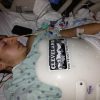April is Autism Awareness Month, the perfect time to clear up some myths and misconceptions about Autism Spectrum Disorder, or ASD.
Contributed by: Melissa Armstrong-Brine, PhD | Behavioral Health
Melissa Armstrong-Brine, PhD, is the director of The Neurodevelopmental Center at MetroHealth. A licensed clinical psychologist, she helps evaluate children who show signs of autism. Only clinical psychologists or medical doctors trained in neurobehaviors (like neurologists or psychiatrists) can diagnose autism.
“ASD is a medically based diagnosis that has some specific behaviors in two big areas,” Dr. Armstrong-Brine says.
Other key facts about autism
- ASD isn’t an intellectual disability. Many people with ASD have above-average IQs.
- ASD symptoms are varied. No two people with ASD have the exact same symptoms.
- Kids and adults with autism do want relationships and do want to be included. It’s a myth that they don’t want social interactions.
- People with autism can live a happy, healthy, contented life, especially with the right support.
Bonus Recipe
Hidden Veggie Meatballs
Contributed by: Jennifer Bier, MS, RD, LD Manager | Ambulatory Nutrition
Autism can cause picky eating, food aversions, and other eating behaviors. Looking for a way to sneak more vegetables into the diet of picky eaters? This Hidden Veggie Meatballs recipe can help.
Next Steps
An Autism Spectrum Disorder diagnosis can be a good thing if it helps your child get the support they need. You can get a referral to The Neurodevelopmental Center at MetroHealth from your pediatrician, who should be your first stop for discussing your concerns.
To schedule an appointment, call 216-778-2222 or visit metrohealth.org/pediatrics.












